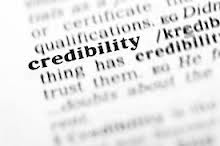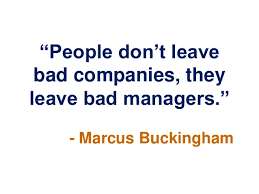Sometimes I think that the written word is a lost art form. Considering how hard I had to work on improving my own writing skills over the years, I take this topic very seriously. In some cases, the use of proper grammar has disintegrated due to the fast-paced environment and technology all around us. Understanding that language is constantly evolving, I have grown to be flexible and accepting of new styles, forms, and words (look up “Ginormous” to get the point). However, I still understand the importance of how much the written word says about the writer.
Twitter, a social networking platform created in 2006, is a text-based methodology to post your thoughts with less than two hundred and eighty characters. These “tweets,” for those not familiar or living under a rock, can be made public to anyone who may be following the author. The public nature of this communication channel is a good example of why a writer needs to be extremely careful of what is written—or, in this case, posted. However, the shortened number of characters creates the need for the person posting to use symbols, limit the use of vowels, and eliminate punctuation in many cases. It also opens the reader up to many interpretations of the meaning of the message, the intended emotion, and the limited context in which it was written.
Although my current employer limits texting, it doesn’t eliminate employees from staying in a texting mode when sending written communication through emails, instant messages, and in some cases, official memos. I have often been accused of being critical about professional writing. Texting and instant messaging are so commonplace in today’s society, both personally and professionally, that they have influenced grammar when it comes time for formal memos and presentations to be done. Too many times, the habits from these quick-hit communication channels come out when it was not intended.
I consider attention to detail in writing both common sense and critical to anyone’s success in the professional world. I personally enjoy the challenge of creating a perfect document. I try to have a magnetic eye when it comes to spelling errors, spacing errors, and many editorial issues. Although I can hardly say that I am perfect with my own writing, I make the effort. In some cases, I think the diverse communication channels and flow have changed our attention to editing the written word. I don’t think we need to push the argument to the full extent and force everyone to hire an editor to sit down and read every email that is sent. However, I would strongly suggest that the authors slow down enough to proofread their own work. Stopping to read what was written prior to sending an email is a smart business move—simply running spell check does not count.
Written communications tell a lot about a person. Are you detail-oriented? Do you have a reputation for misspelling, poor grammar, or a lack of ability to check your own work? Whether we like it or not, judgments are often being made about our intelligence level based on what we put down in writing. In a professional setting, do you want the reputation of being the person who always uses silly acronyms such as LOL (“Laugh out loud”), EMPHASIZES YOUR EMOTIONS THROUGH CAPITALIZATION, or must get your point across with multiple exclamation points (e.g., !!!!!!!!) on formal, business-related communications? Believe it or not, I have read the word “crap” more than once on supposedly professionally-written emails.
I have been given the advice often that you should assume that what you write or send to someone can, and potentially will, be made public, even if your intentions are to keep the audience restricted. There are far too many opportunities for messages to be sent on to unintended parties. We are too public in our communications in today’s world not to be cautious of what we write. I am not talking about spelling issues. I am talking about private messages that become public because of our ability to forward and reply to the message. Emails can become an endless string. I recently saw an example of an email that came back to my inbox over two hundred times because someone hit “Reply All” in error, and then a comedy of emails of people informing the person that she hit “Reply All,” followed by the annoyed recipients who chose to inform everyone that they should not be responding to “Reply All.” The final kicker was the courtesy “Thanks” response at the end.
I am often surprised—although I have seen it enough not to be—that within minutes following an internal memorandum, it is already published on an external website for the entire world to see. I am not naïve enough to think that this is not intentional as a way to get the good news out about a company. However, we need to be sensitive that in any company, less trusted individuals with access to information are hungry to seek out the media to share the negative company news as well.
Depending on the company policy, the written word can be permanent. You should always make the assumption that what you write is considered part of the permanent record. How often have you seen in the news someone from a large corporation been dragged through some investigation, including a senate committee hearing, because of an email that came back to haunt them, or someone running for public office whose past written word forced them to be dragged through the mud? The key is to be careful in what you choose to put down in writing. Deleting your emails may not be your savior with today’s technology. We all need to be sensitive in what we choose to send out with our name on it.
Let’s oversimplify: proofread your work. The easiest way to do this is to stop and read it before sending it. I know I am stating the obvious, but running spell check is not considered editing in my eyes. Just ask my old manager, who had the word “manger” written at least twenty times throughout one of my performance appraisals. If we don’t edit our work, we may be losing some credibility—just ask the person we attempted to recognize with an email that starts with “Congradulations.”
I have had many people tell me that writing skills aren’t needed for certain jobs, such as being on the phones talking with customers. This may be true based on the job itself, but it also has to do with pride in your own skills and ability. In my field of work starting from speaking to customers on the phone to managing people and projects, I felt it was imperative to have decent writing skills. Let’s use the example of working on the phones: You may need to document the conversation on the system. Other customer service representatives need to see it for future interactions. The customer needs it for a record to ensure that the inquiry is addressed and resolved. What if it is more complicated, and an email or written request needs to go to another department? What about emailing the manager for assistance? I have seen run-on sentences that have lost all meaning, and entire communications without a vowel. Basic writing skills are critical if your original intended meaning is to be understood.
The speed of business may have moved us from the need to consciously vet everything written through proper and traditional grammar editing. I am pragmatic and understand not every word needs to be scrutinized. My request of you is to pay attention and double-check your own work to ensure clarity within the writing. How it is written, and the attention to detail, is often interpreted solely by the reader, regardless of intent. If you are someone who does not proofread well on a computer system, there are other methods that are helpful, such as reading a passage backward, and in some cases, printing it out to give it the extra attention it may need (note: plug to minimize printing when possible for environmental reasons). You can always have a second set of eyes review as well.
Whether someone chooses texting, instant messaging, email, or formal memos, a person’s personality comes out loud and clear. All methods are effective means of communicating. Text and email tend to be more reactive, but knowing this will change how you effectively use it. The key is to think things through before you hit send. These written communication channels have a tendency to have more emotion—which can be dangerous. What you intended to communicate and what is truly interpreted can and will be different. Take the time to gather your thoughts and to review them. Interpretation is a one-sided process. The recipient has full control to interpret your message any way he or she wants. A simple written joke, such as, “What was up with your presentation this morning?” can go from a fun message to say “nice job” with a little jab, to getting the recipient upset and forcing the need for apologies.
When it comes to written communications, please take notice of the following:
• Be clear and concise in what you are attempting to convey
• Invest time to review your written work prior to turning it in or sending it on
• Understand what you write will become a record of who you are
• Writing is a skill that can and should be honed
• There is value in effective writing skills; value that will be noticed and appreciated by the reader.
Thomas B. Dowd III’s books available in softcover, eBook, and audiobook (From Fear to Success only):
- Now What? The Ultimate Graduation Gift for Professional Success
- Time Management Manifesto: Expert Strategies to Create an Effective Work/Life Balance
- Displacement Day: When My Job was Looking for a Job…A Reference Guide to Finding Work
- The Transformation of a Doubting Thomas: Growing from a Cynic to a Professional in the Corporate World
- From Fear to Success: A Practical Public-speaking Guide received the Gold Medal at the 2013 Axiom Business Book Awards in Business Reference
- The Unofficial Guide to Fatherhood
See “Products” for details on www.transformationtom.com. Book, eBook, and audiobook (From Fear to Success only) purchase options are also available on Amazon- Please click the link to be re-directed: Amazon.com










